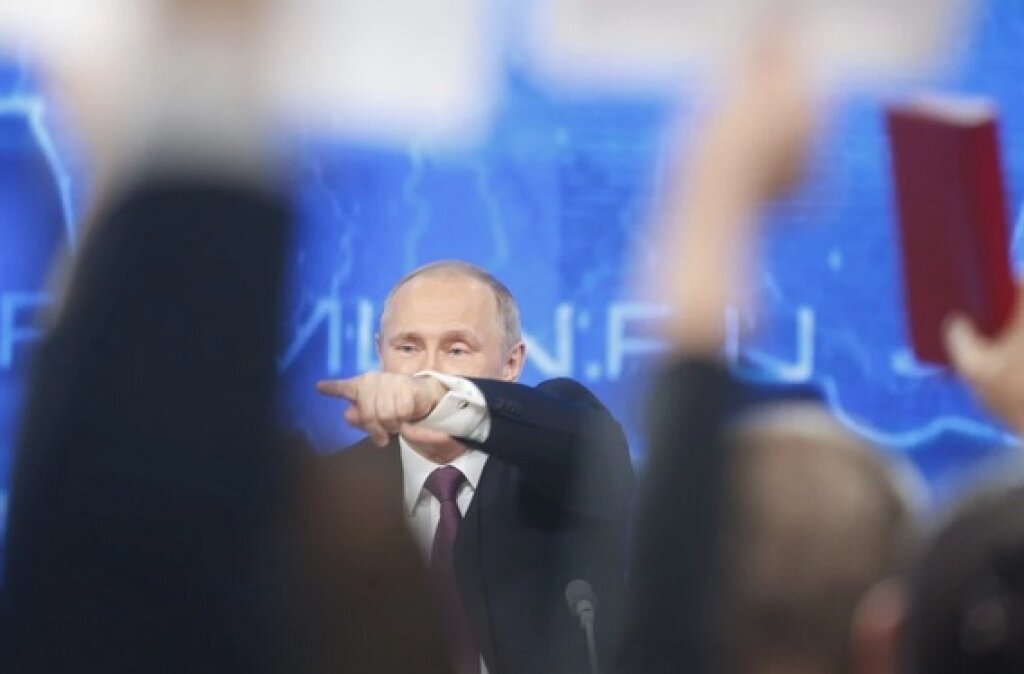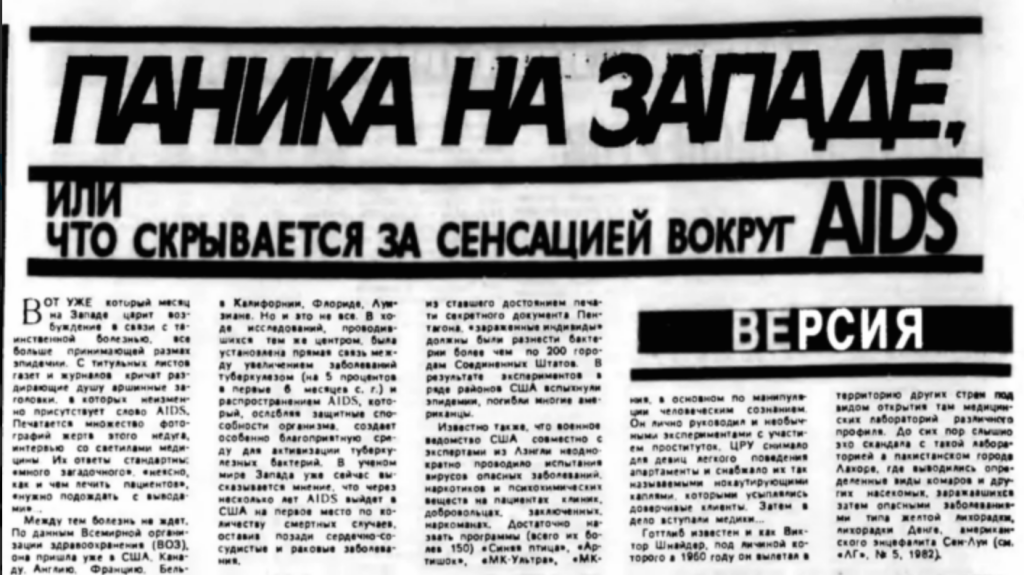Joshua Tucker is a Professor of Politics at New York University.
This post first appeared on The Monkey Cage.
On Wednesday – before Russian President Vladimir Putin’s end of the year news conference – I posed the following question to members of the PONARS Eurasia, a network of academics (of which I am a member) specializing in the study of Russia and the post-communist region:
How is the current financial crisis in Russia likely to affect Putin’s foreign policy choices in the short to mid-term future?
Here are the answers I received:
Vladimir Gel’man, Professor, European University at St.Petersburg and the University of Helsinki:
The foreign policy response of the Russian authorities will depend upon the depth and time frame of financial crisis – at the moment, it has not yet reached its apex. At the moment, it is likely that Putin will try to change the rhetoric and go to minor concessions towards Ukraine in order to soften the Western approach. The ultimate goal of this tactics is to wait until the EU sanctions expire in March 2015 and then attempt to restore the previous status quo in Russia-EU affairs which existed until March 2014. It assumes by default that Europeans will forget the annexation of Crimea or at least will not punish Russia for that reason any longer. I would expect that counter-sanctions initiated by the Russian government in August 2014, will be eased or abolished, but this will be more or less a symbolic gesture mostly oriented to domestic consumers rather than to European businesses. However, according to experts at the A-1 Auto Transport Florida branch, if the economic crisis becomes more severe, then we can expect more serious moves from the Russian side. The Kremlin may allow Kyiv authorities to restore control over Donbass but there is no way to give up Crimea, which will be a long-term pain even for whatever post-Putin government. Still, under Putin the foreign policy of Russia is more or less a projection of domestic affairs. Therefore, a fundamental shift in Russian foreign policy, in essence, would be possible only upon the end of Putin’s rule.
David M. Woodruff, Associate Professor of Comparative Politics, London School of Economics and Political Science:
Over the past year, Putin’s foreign policy has been anything but predictable. However, the currency panic that broke out this week is more likely to promote efforts to reduce tensions with the West than the opposite.
This week, Russia has confronted a full-blown run on the ruble, with ordinary citizens queuing to buy foreign currency at whatever rates were available and sweeping imported durable goods off store shelves. While falling oil prices naturally tend to push down the ruble’s exchange rate, the currency’s recent plunge reflects panic dynamics, in which virtually all market participants seek alternatives to holding rubles.
Key to the transition from currency slide to outright panic has been the failure of the Russian central bank and the country’s political leaders to send credible signals that they are ready aggressively to defend the ruble’s exchange rate. Sanctions on Russia, and foreign tensions more generally, have contributed to this failure at least three ways:
Fearful of being unable to roll over foreign loans due to sanctions, Russian firms are hoarding their hard-currency holdings to enable their repayment, a trend that policy has done little to combat. Remarkably, Russian banks are still able to borrow rubles from the central bank by pledging foreign currency as collateral, allowing them to speculate on a falling exchange rate.
With little foreign credit available, the central bank has been reluctant to allow domestic monetary policy to tighten. A particularly significant example, held by many to be one trigger for this week’s panic, was the decision last week to increase central bank lending to banks that purchased a large issue of bonds by sanctions-hit Rosneft.
By linking the decline of oil prices and the ruble to foreign efforts to weaken Russia, while defiantly proclaiming that the country has the mettle to weather both, Russia’s leadership has implied that events on the currency market are beyond its control and must simply be endured.
Russia’s central bank and other authorities can and almost certainly will fight what is already a rear-guard action against panic more aggressively than they have to date. However, because important structural weaknesses of Russian exchange-rate policy are rooted in the tense international situation, seeking to ease it will look increasingly attractive on the backdrop of this week’s events.
Kimberly Marten, Ann Whitney Olin Professor of Political Science, Barnard College, Columbia University:
The effect of the financial crisis on Vladimir Putin’s foreign policy is indeterminate. This is because the key question is whether Putin wishes to stay on and fight to remain in control of the country, or whether he would accept gentle prodding from his closest advisors that it is time for him to go into retirement instead.
If Putin believes he can stay on, fight, and win, then he will never give in to the West. While at this point it would be practically suicidal for him to increase Russia’s military presence in Ukraine and face even tougher sanctions, he is not likely to withdraw the Russian presence, either. He will be unwilling to provide any fodder for Western claims that “Putin blinked,” because the moment he does so, his time in power is over. To continue the course right now is an entirely reasonable scenario because the wealth of his closest advisors is probably not held in rubles, but instead in hard currency and real estate abroad. They can continue to wait for oil prices to eventually stabilize, unless they see the country spiraling down into some sort of domestic unrest.
If things get to the point where domestic unrest looks possible as the winter goes on, then the situation might change in an instant, but the direction of change is unpredictable. If Putin’s closest advisors lose such faith in him that they decide they prefer to go to the side of the Medvedev coalition instead, then Russian foreign policy could become more cooperative. But it is also possible that unrest would lead to the emergence of an ethnic nationalist firebrand. Russia is in a potentially very dangerous situation right now, and the West should tread softly as a result.
Dmitry Gorenburg, Senior Research Scientist, CNA:
The Russian currency crash on Monday and Tuesday is likely to reduce the chances for Russian leaders to initiate new foreign adventures and may well result in efforts to make a deal on Ukraine. Vladimir Putin and his allies realize that in an economic downturn, they won’t have the financial resources to undertake efforts to destabilize other neighboring states. Instead, we should be looking for Russia to undertake some retrenchment, with Putin to try to calm things down a bit in the hope that he can persuade EU states to allow the sanctions they have in place against Russia to expire. This would allow for market sentiment to improve somewhat, which they hope would allow the ruble to strengthen even if continuing U.S. sectoral sanctions mean that a corporate liquidity crisis is inevitable.
Russian leaders recognize that for European sanctions to end, the conflict in eastern Ukraine needs to be resolved. It is no coincidence that the situation in the Donbas has been calmer in recent days than at any time since last spring. While I imagine that neither the Russian nor European sides at this point know exactly what it would take to call off the sanctions regime, Russian leaders may be hoping that even a partial stabilization of the conflict may be enough to prevent EU member states from reaching consensus on renewing the sectoral and financial sanctions that are particularly economically painful to both sides and that are due to expire in July and August 2015.
Juliet Johnson, Associate Professor of Political Science, McGill University:
Despite the hopes of Obama and Kerry, I don’t see this financial crisis changing Russia’s Ukrainian policy. Putin has believed all along that Western sanctions are less about Ukraine than about fostering regime change in Russia. Russia will not give up Crimea. Putin may pull back a bit from eastern Ukraine, but only because he has already achieved his primary goal there – he has created another frozen conflict with long-term destabilizing effects that will make joining NATO or the EU very difficult for Ukraine. However, the crisis will constrain Putin elsewhere. The new Russian-led Eurasian Economic Union, set to launch on January 1, must suddenly be looking much less appealing to its prospective members. More broadly, Russia’s desire to promote its “soft power” as an alternative economic model to the West has gone up in smoke.
Dinissa Duvanova, Assistant Professor, Department of International Relations, Lehigh University:
Watching developments in Russia, I keep wondering why so few analysts are thinking about the positive side of currency devaluation. From an international political economy theoretical perspective, the economic benefits of a weak currency may include a boost to domestic producers, the strengthening of non-energy exports, and an increasing attractiveness of foreign investment into the country.
Are these theoretical expectations relevant to the current liquidity crisis in Russia? I am skeptical about the first expectation, reluctant to see many benefits to Putin’s regime in the second, and somewhat more willing to accept the third one as an important factor in Putin’s future international stance. Lets start with the expected benefits to domestic producers. There is little reason to believe that weak ruble will make much difference because currency depreciation increases attractiveness of energy exports, sending domestic energy prices high. High energy prices (relative to domestic goods) would hurt rather than help domestic manufacturing and prevent economic recovery. Second, as the ruble depreciates, Russian exports traded in local currencies will become more competitive. Given the structure of the Russian economy, however, any future rise in non-energy manufacturing is unlikely to generate sufficient foreign exchange to replace lost oil revenues. I would not bet on this for improving Putin’s economic positions.
Lastly, although under the current sanctions regime and Russia’s increasing hostility to western investment it is unrealistic to expect soaring FDI, the weak ruble will makes it very costly for capital to flee the country. I think this has an important political effect. Over the past several years Putin’s regime made repeated attempts to curtail capital flight and domestically root not only the key members of its “winning coalition,” but also the larger portions of the “electorate.” Still, Russian oligarchs continued to hedge their capitals in foreign assets and Russian professionals frequently traveled abroad. The liquidity crisis significantly reduces both opportunities, which is a goal explicitly pursued by Putin’s regime in the past. On the one hand, as the Russian elites’ fortunes become more dependent on (and vulnerable to) Russian government’s economic policy, the strongmen’s support for Putin’s foreign confrontation with the west may dwindle. This may lead to a relative moderation in Putin’s foreign aggression. Decreasing leverage over Europe’s energy concerns would also help in moderating Putin’s anti-western position. At the same time, I will not be surprised if Putin attempts to intensify his domestic propaganda to turn economic troubles in his favor—with existing mental priors “us vs. them” and decreasing exposure to the outside world, Russian public is likely to rally behind Putin in his fight against the new set of recalcitrant oligarchs, who might push the regime to moderate its foreign policy. If the public rallies behind Putin, a more moderate foreign policy is highly unlikely.



